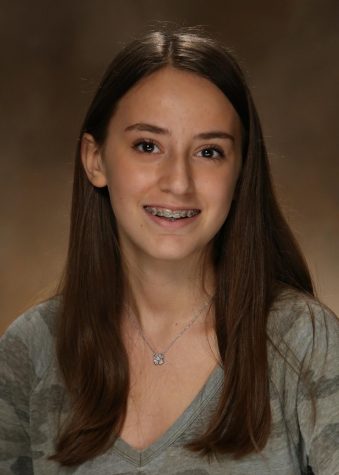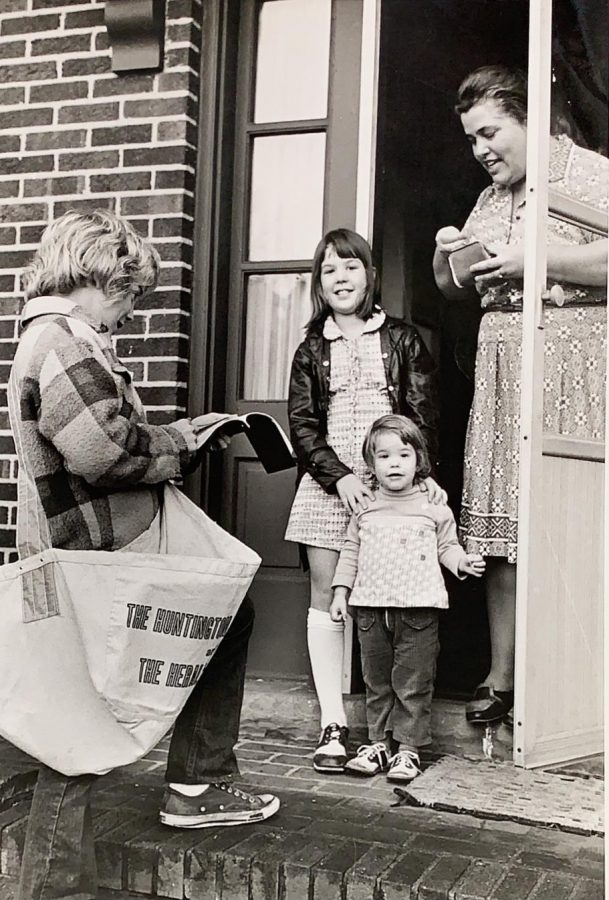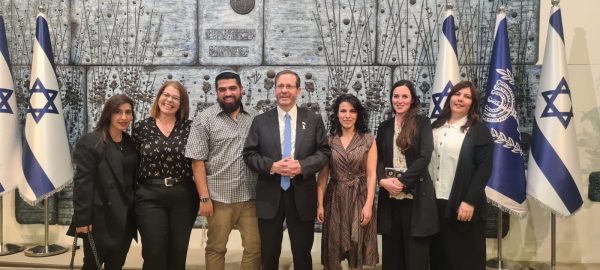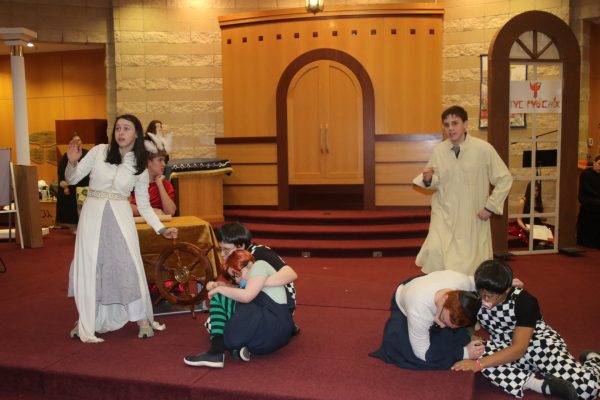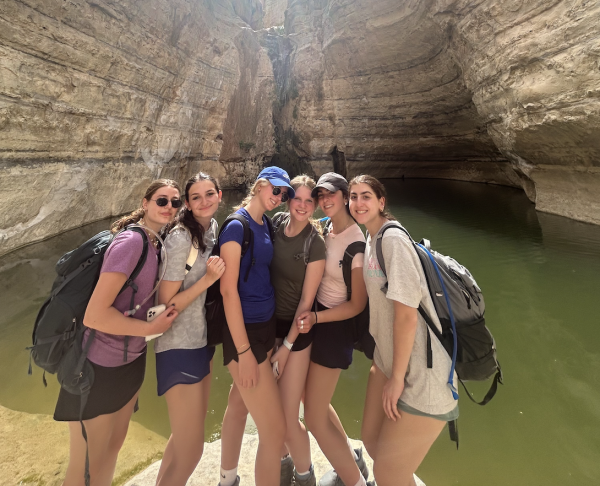Just keep breathing: A look at returning faculty member Grace McMillan
“Close your eyes and take a few deep breaths.” That is how high school teacher Grace McMillan begins each of her classes.
While this exercise is not mandatory, McMillan requires students to either be quiet and close their eyes or to put their heads down during the one or two minutes of breathing.
“The purpose is to help students center themselves, and be ready to be present in class,” McMillan said. “It’s also to build the skill of being able to do deep breathing to be able to calm themselves when they’re in sort of an unsettled, anxious situation.”
High school guidance counselor Rachel Soifer agrees that a deep breathing exercise is a great way for students to transition into class from their social interactions in the hallway.
“Deep breathing can just allow you to relax your body and relax your mind very rapidly and prepare yourself for optimal engagement and learning,” Soifer said.
Soifer believes deep breathing can be beneficial depending on the circumstances of the class, as some may not take the deep breathing seriously; however, the idea might be “wonderful if students are ready for it,” Soifer said.
Sophomore Georgia Michaels, a student in McMillan’s Biblical Themes in World Literature class, agrees with Soifer, as Michaels finds the breathing routine effective when students are calm and not very energetic.
“I think it’s a good way to start the class especially after we’ve been through other classes, and we are a little impatient, and ready to bounce out of our seats,” Michaels said. “It’s nice to sit and relax and breath to get everyone in a calmer mindset.”
Part of the reason McMillan started doing deep breathing was because of her knowledge regarding mental health and having a masters degree in social work from the University of Maryland. She felt increasingly concerned about students’ anxiety and thought that the techniques she learned in her social work program would benefit her students in the classroom environment.
After earning her degree, McMillan returned to JDS for the 2017-2018 school year as a part-time teacher and a long-term substitute for a teacher on maternity leave. She originally left in the 2010-2011 school year to get her social work degree and taught part-time in 2011. This year, McMillan again became a full-time teacher and teaches four different courses in three different departments: Psychology, an elective; World Literature, an English course; and both Biblical Themes in World Literature and a Tanakh Seminar on the Book of Kings, two Jewish Text courses.
Teaching four fairly different courses with six classes in total, ranging from the Enriched College Preparatory to the Advanced level, is challenging according to McMillan, but she is able to manage her time well.
“The hardest part is getting the grading done, partly also because I don’t like it very much,” McMillan said. “It is a lot of different classes to prepare for, but I love all the classes so I enjoy thinking about and coming up with interesting plans for each of the classes. So it is a lot to balance, but it’s worth it.”
Despite teaching many subjects, McMillan is highly qualified for all of the courses she teaches. Her experience in Jewish text stems from an undergraduate degree in religion from Oberlin College and a master’s degree from Harvard Divinity School in theological studies. Her other qualifications include her master’s degree in social work from the University of Maryland, as well as studying at Stanford University, Hebrew University, and Nishmat, a Jewish women’s learning place.
At the end of the day, McMillan said that the work is well worth it because being an educator has an important purpose.
“The essence of being an educator is helping young adults discover who are they and who they want to become,” McMillan said.
This story was featured in the Volume 36, Issue 3 edition of The Lion’s Tale, published on Dec. 20, 2018.
